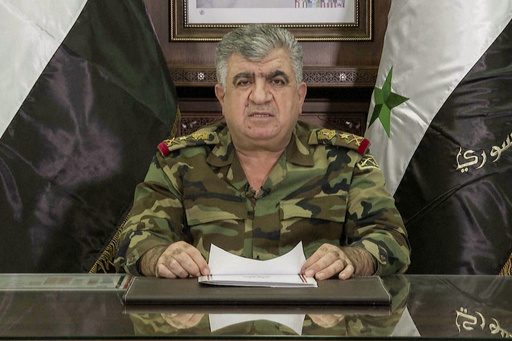BEIRUT — Following the recent overthrow of Syrian President Bashar Assad, many high-ranking officials and members of his notorious intelligence and security forces appear to have vanished. Activists report that some individuals have managed to escape the nation while others have taken refuge in their hometowns.
For over fifty years, the Assad family has maintained a stronghold over Syria, often imprisoning anyone who dared to challenge their authority in the infamous centers of incarceration, where advocacy groups claim detainees have frequently faced torture or even death.
Ahmad al-Sharaa, the leader of the insurgent group Hayat Tahrir al-Sham (HTS), which played a significant role in ousting Assad, has pledged to seek justice for those who committed such acts. “We will pursue them within our territory,” he stated, using his former name, Abu Mohammed al-Golani. He further emphasized that the group would solicit assistance from other nations in apprehending suspects.
However, locating those accountable for the abuses might prove challenging. Recently, around 8,000 Syrians reportedly crossed into Lebanon via the Masnaa border crossing, as noted by two Lebanese security officials and a judicial representative, while about 5,000 others have departed Lebanon through the Beirut international airport. The officials chose to remain anonymous due to the confidential nature of the information.
The majority of those crossing are thought to be ordinary citizens, with Lebanon’s Interior Minister Bassam Mawlawi asserting that no Syrian officials legally entered the country. To thwart the escape of Assad’s government members, a Lebanese officer responsible for overseeing Masnaa was reportedly placed on vacation because of his connections to Assad’s brother.
Despite efforts to block their departure, Rami Abdurrhaman, who leads the Syrian Observatory for Human Rights based in the UK, insists that several senior officers have successfully crossed into Lebanon using false identification.
Bashar Assad, a Western-educated ophthalmologist, initially inspired optimism with promises of reform when he assumed power in 2000, including releasing political prisoners and fostering a more open dialogue. However, following the outbreak of protests in March 2011, he resorted to violent measures to quash dissent, deploying military force to target opposition-controlled cities, supported by allies like Iran and Russia. Recent reports suggest he has sought refuge in Moscow.
Meanwhile, his younger brother, Maher Assad, who commanded the 4th Armored Division—a unit accused of various human rights abuses—has reportedly disappeared over the weekend, allegedly making his way to Russia. Maher and several other senior officials are under international sanctions, with a French arrest warrant issued against them for war crimes tied to a chemical attack in a 2013 incident.
Maj. Gen. Ali Mamlouk, who served as a security adviser and formerly led Syria’s intelligence services, is also sought after in Lebanon for his alleged involvement in bombings in Tripoli in 2012 that resulted in numerous casualties. He has been sentenced in absentia to life in prison in France for his role in war crimes. Abdurrhaman claims Mamlouk has fled to Lebanon, though his current status remains uncertain, with speculation he may be receiving protection from Hezbollah.
Brig. Gen. Suheil al-Hassan, formerly in charge of the Special Forces, was instrumental in many of Assad’s military achievements over the course of the civil war. Al-Hassan has established connections with Russia and has been commended by President Putin, though his whereabouts are unclear.
Maj. Gen. Hussam Luka, who heads the General Security Directorate, has not garnered significant public recognition but has been pivotal in the crackdown against resistance, particularly in Homs, known as the “capital of the Syrian revolt.” He faces sanctions from the U.S. and the UK, yet his location remains unknown.
Finally, Maj. Gen. Qahtan Khalil, also unaccounted for, was associated with the Air Force Intelligence and is infamously referred to as the “Butcher of Daraya” for leading an assault that resulted in countless deaths in a 2012 attack on that Damascus suburb. Additional officials such as retired Maj. Gen. Jamil Hassan, former head of Air Force Intelligence, have also been implicated in human rights abuses, while Defense Minister Lt. Gen. Ali Abbas and Maj. Gen. Bassam Merhej al-Hassan are likewise accused of serious violations.
